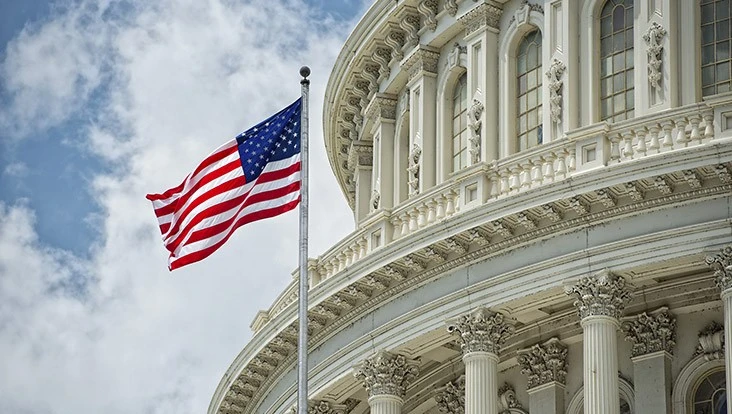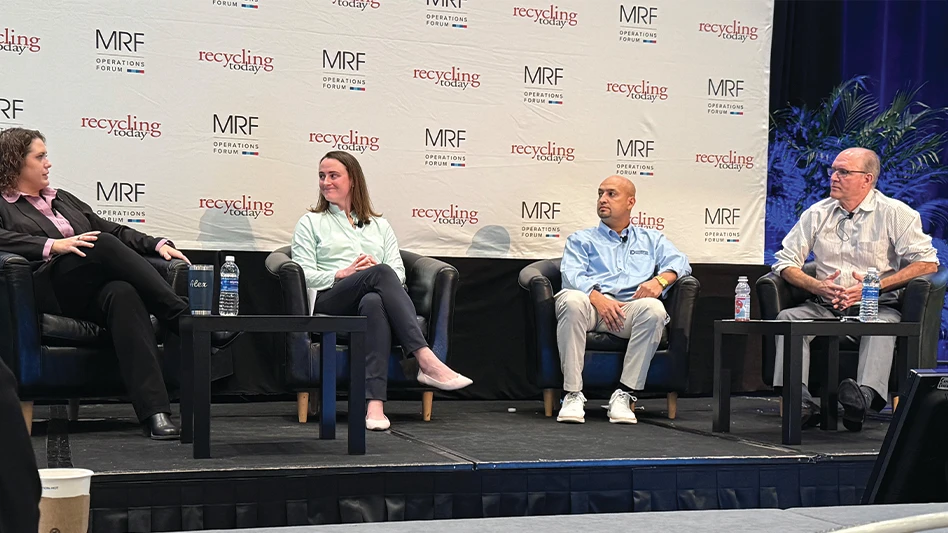
Thinkstock
July 25, Rep. Ilhan Omar of Minnesota introduced the Zero Waste Act to Congress. The bill would create a federal grant program to help local cities invest in zero waste initiatives. These funds could go toward recycling infrastructure or the creation of partnerships with local businesses aimed at reducing waste in their operations, according to a news release from Omar’s office.
The Zero Waste Act “will create jobs, grow domestic manufacturing, reduce greenhouse gas emissions, clean waterways, protect our communities from health hazards, save energy and further grow our economy,” the news release states.
Original co-sponsors of the bill include Reps. Raúl M. Grijalva, Eleanor Holmes Norton, Deb Haaland, Betty McCollum, Pramila Jayapal, Earl Blumenauer, Henry C. “Hank” Johnson Jr. and Ayanna Pressley.
“This bill is critical to combating pollution and the climate crisis and is a key part of the Green New Deal,” Omar said in the press conference announcing the legislation.
“We can imagine a future where we prioritize people’s health, the environment and justice, knowing our fates are tied together,” Omar says in the news release announcing the legislation. “Today, we need elected leaders to champion solutions that match the scope of the challenges we face. Addressing the waste crisis is critical to preventing further damage to our climate—it’s integral to racial justice and a clean, equitable future.”
Landfills were responsible for 103 million metric tons of carbon equivalent emitted as of 2011, or 18 percent of all methane emissions, according to the news release.
Omar also sees waste as an environmental justice issue, saying that nearly 80 percent of incinerators are placed in low-income areas or near communities of color and indigenous lands—including north Minneapolis and the Phillips neighborhood in Minnesota’s 5th District, which Omar represents.
The bill stipulates that grants could be used for organics recycling infrastructure, “including facilities, machinery, equipment and other physical necessities required for organics collection or processing on a citywide or countywide scale, provided that—(A) implementation of such project—(i) results in increased capacity for residential and commercial source-separated organics streams; and (ii) generates a usable product that has demonstrable environmental benefits when compared to the input materials, such as compost with added nutritional content; and (B) such project does not include mixed waste composting.”
Grants also could be used for electronic waste reuse and recycling, source reduction and market development. However, ‘‘buy-back’’ programs that provide compensation for used electronics in the form of a credit toward the purchase of additional electronics would not be eligible. Grant recipients also would need to be “certified in sustainable electronic waste standards by an organization accredited by the National Accreditation Board of the American National Standards Institute & The American Society of Quality, or another accrediting body as determined appropriate by the Administrator,” the bill states.
The electronics waste market development grants can be used for “creating demand for sorted recyclable commodities and refurbished goods and promoting domestically owned and operated manufacturing for projects relating to source reduction or waste prevention.” However, these projects would need to target “easily or commonly recycled materials which are disproportionately disposed of in landfills or incinerated” and address “the reduction of the volume, weight or toxicity of waste and waste byproducts.”
The city of Minneapolis, Eureka Recycling of Minneapolis, Zero Waste Washington, Texas Campaign for the Environment & TCE Fund, U.S. Composting Council, Global Alliance for Incinerator Alternatives (GAIA), Climate Generation, Surfrider Foundation, TakeAction Minnesota and Minnesota Composting Council have endorsed the bill.
Latest from Recycling Today
- AF&PA releases 2023 paper recycling rate, unveils new methodology
- ARA names new president
- Aurubis invests in Lünen, Germany, site
- ILA, USMX negotiations break down
- Van Dyk hires plastics industry vet to expand footprint in PRF sector
- Li-Cycle closes $475M loan with DOE
- Report highlights consumer knowledge gaps in lithium battery recycling
- AMP names CEO





